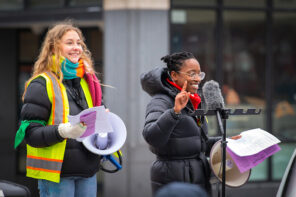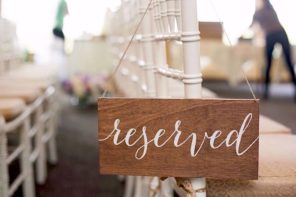By now we’ve all learned that the U.S. Supreme Court decided the Masterpiece Cakeshop case in favor of Jack Phillips, the baker who refused to design a custom cake for a same-sex wedding.
But what’s more interesting is what the Court decided not to decide. For one thing, the Court did not conclude that Phillips was not in violation of Colorado’s antidiscrimination law: it held only that if he was, he did not receive a sufficiently impartial hearing.
For another thing, the Court did not hold that Phillips’s cake-making is a protected form of artistry. Remember the oral arguments that the justices heard in December: neither Phillips’s freedom to exercise his religion, nor the Colorado Commission’s treatment of his beliefs, occupied much time. (Tellingly, it was Justice Anthony Kennedy, who authored the Court’s opinion in this case, who first homed in on the commission’s proceedings.)
As those who followed the case will recall, the justices devoted much of the argument to a detailed, and sometimes lighthearted, examination of the question of whether Phillips’s custom cake-making qualifies as expressive conduct. Commentators and authors of amicus briefs alike reveled in questions such as whether “Subway sandwich artists,” pastry chefs, makeup artists, and hair stylists merit the protections of the First Amendment.
The Court in its opinion said hardly a word about speech, a conspicuous silence on a topic that dominated both the oral arguments and Phillips’s attorneys’ briefs. As Justice Kennedy admitted early in his opinion, “[t]he free speech aspect of this case is difficult, for few persons who have seen a beautiful wedding cake might have thought of its creation as an exercise of protected speech.”
Indeed, only two justices—Clarence Thomas and Neil Gorsuch—showed interest in Phillips’s free-speech claims, relying on Phillips’s description of himself as “an artist” and on the labor and imagination that he puts into his frosted creations. In a long footnote, dissenting Justices Ruth Bader Ginsburg and Sonia Sotomayor decisively rejected their colleagues’ argument, observing that Phillips had offered “no evidence showing that an objective observer understands a wedding cake to convey a message.”
For gay rights advocates, this is an important upshot in a ruling sure to bring disappointment. The Court may not have explicitly rejected Phillips’s free speech claims, but the fact that seven of nine justices chose not to follow Phillips and his attorneys in their primary reasoning, even while ruling in their favor, is noteworthy.
The Court’s reticence to engage in line-drawing about the capacity of cakes (or flowers, or hairstyles, or any number of other products) to be expressive may have the consequence of drawing out more clearly the conflict at the heart of Masterpiece Cakeshop. As Justice Kennedy rightly noted, the case is about “the proper reconciliation” of, on the one hand, “the authority of a State… to protect the rights and dignity of gay persons” and, on the other, “the right of all persons to exercise fundamental freedoms,” including the free exercise of religion.
And therein lies a second, likely much less welcome upshot for gay rights advocates. Justice Kennedy’s opinion for the Court argued that the Civil Rights Commission unfairly treated Phillips in two ways. His first argument, that the commission permitted other bakeries to refuse service to customers who wished to commission cakes with anti-gay messages, doesn’t hold much water, as others have already noted. But Justice Kennedy’s other argument, that the comments of one of the commissioners demonstrated anti-religious animus, could indicate that the Court (and courts more generally) will be vigilant going forward in ensuring the respectful treatment of those who disagree with the growing majority of Americans who support equality for LGBTQ+ citizens.
The Supreme Court will someday need to decide the fundamental issue at stake in Masterpiece Cakeshop: whether and to what extent sincerely held religious objections to same-sex marriage should be allowed to exempt someone from generally applicable laws. It remains to be seen exactly when one or more cases with less troublesome facts will make it impossible for the Court to take another procedural sidestep (as it remains to be seen, as some have noted, whether Justice Kennedy will apply his logic to the Court’s upcoming decision on President Trump’s travel ban.) But for now, those disappointed by the outcome of this case should take solace in what the Court did not decide.





